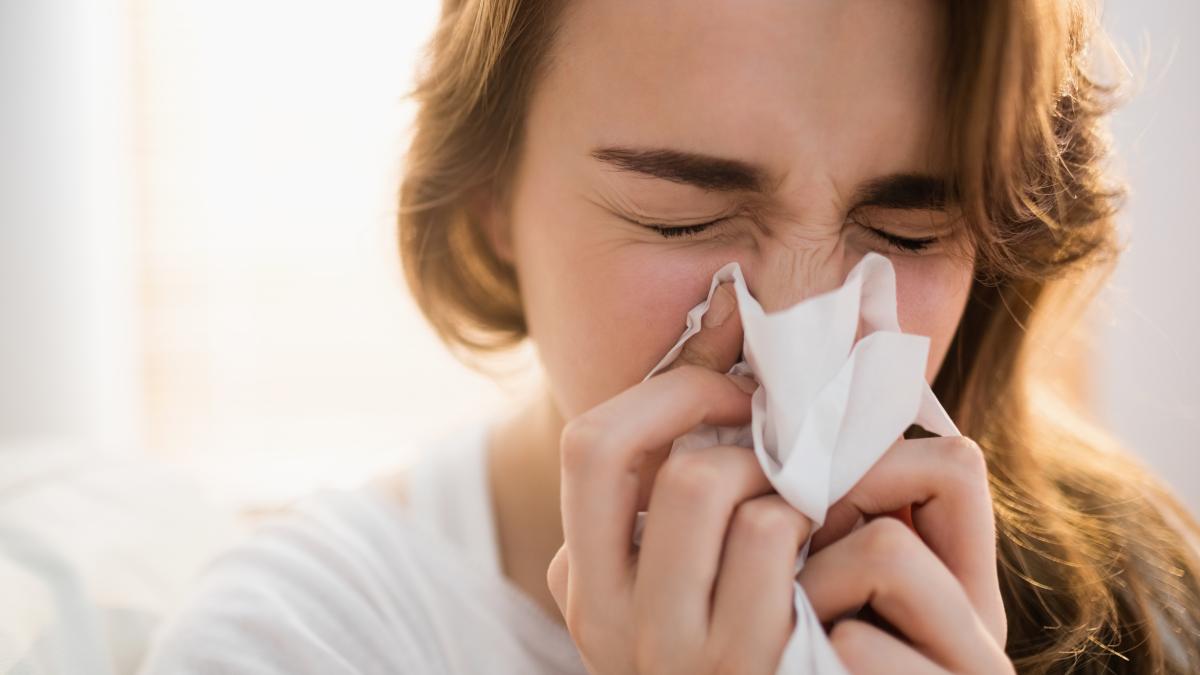
A few days ago, I wrote this opinion piece on people who show up to work with the flu. While I stand by the opinion that, if you have access to sick leave, you should be taking it when you’re sick instead of coming into the office and acting like a hero for struggling through your cold – after reading the comments on social media, I realised my view was, to be frank, pretty narrow-minded.
[jwplayer RHVfcf8m]
When I was in Uni, I worked casually in retail. Thinking back, I can recall multiple times I came down with a cold or flu and felt I had no choice but to go in to work. Our casual system was this: if you can’t do a shift, cover it with another staff member. While this is all well and good when you’re going on holidays, it doesn’t work so well when you wake and you’ve got full-body shivers. Most of my shifts saw me alone in store – if I didn’t show up, the store wouldn’t open.
I even remember a time when I did the solo shift with a vicious flu, and someone in upper management walked past and spotted me sitting on a box behind the desk. I was drained from sickness, but got in trouble because we weren’t meant to sit down on the job. I shouldn’t have even been there in the first place.
As I read the comments on my article and saw many people making the very valid point that many non-office workplaces make employees feel like they will literally stop the business running if they stay home when sick, I realised there was more to this sick leave conversation. When people brought up the fact that many casual workers will actually miss out on a full day of pay if they stay home sick, I realised the problem was bigger than just toxic work cultures – the entire system is flawed.
I got in touch with some commenters who had strong opinions about everything from the casual workforce in Australia – which many young people exist within – to tell me what they think needs to change, and what their experience has been.
Heather* works in retail and says the pressure to work sick is a combination of finances and toxic employers.
As I work with people and children all day, we are prone to a lot of sickness in my line of work. Recently I had a bad flu, and felt like I had to go in as not only can I not afford a day off, but also because of the backlash and pressure placed on me by the owner/employer if I do call in sick. This is mainly because they won’t hire the correct amount of staff we actually need to run smoothly, as they obviously make more money if they don’t have to pay more staff. And almost every staff member is a casual worker.
Even more concerning is the attitude within the hospitality industry, where someone working while contagious can infect not just their colleagues, but customers – particularly if they come in contact with food, plates and glasses.
James* is now a manager at a bar/restaurant, but told me a horrific story from when he was casually employed in a pub.
“I was visibly sick, sweating, runny nose, coughing… The lot. I nearly passed out in the food service area as the noise, heat, smells etc became overwhelming. It couldn’t have been a positive experience for a customer being served by a staff member that clearly shouldn’t be at work! I told my manager that I felt terrible, and that I didn’t think I should work. The reply was “ah we’ve all had it, you’ll be okay”.
Georgia* works in a bar, and came down with a bad flu. Her weekly hours meant she felt financial pressure to work through her illness, even when it turned into pneumonia.
In 2017 I had a bad case of the flu, which resulted in me having laryngitis for nearly 5 weeks; to the point where I couldn’t even whisper. I was employed as a casual with only 20 hours a week, so obviously I could not have time off; and whilst my bosses said I could just sit on washing glasses, I had to attempt to talk and engage with customers the entire time, with the additional pressure from my bosses to know when I’d be able to do my job properly again. Another time I had the flu, and worked overnight shifts even though I had pneumonia from said flu and could barely string a sentence together. It’s just the norm, don’t even get me started on mental health days.
So what can be done? It’s clear that for many it’s not as simple as “just stay home and rest”. When your financial livelihood is at risk, whether from cut hours or a manager who makes you feel like a shit employee if you don’t work, sickness becomes something you just work through – even if you know it’s unhealthy both for you and for the people around you.
“Hospo has the mentality that everyone is replaceable, and threat of hours being cut for the slightest reason – sick day, requested day off, rostering requests – is loomed over your head daily, you are too frightened to risk your job so you just deal with it and your life suffers,” says Georgia.
She says the answer is more job security.
“There needs to be more job security in the form of proper part-time and full-time contracts. Additionally, hospo workers regularly work 12 and above hours a shift, penalty rates need to enforced in respect of that.”
James agrees, and also feels the hospitality workforce culture needs a big change, with better staffing so people can actually take their sick leave.
“..working well over contracted hours (38 hour contract, 60+ hour working week… Lol) is the norm. You are just guilt tripped into working [while sick]; many bars and restaurants operate on a skeleton crew all the time, due to the nature of the business. Calling in sick would mean colleagues would have to work twice as hard, because let’s face it, nobody is going to sacrifice a day off to cover.”
When it comes to retail, Heather wants to see real action taken from a government level on companies who treat staff terribly.
Our wages need to align with the cost of living, and the workforce needs a thorough revamp. Fair Work is basically a joke. The way owners treat their staff absolutely needs to change- we should be treated with the basic respect and decency of human beings, as right now we’re just treated essentially like robots. Most companies seem to have the same outlook on how they treat their staff. We also need someone to start actually listening and doing something about the complaints on individual workplaces that aren’t doing the right thing, without it having to go to bloody A Current Affair or something for a change to be made. All of the places I’ve worked at could probably have been/be sued on some Fair Work issues.
Reading these stories made me realise that the issue of sick leave is bigger than just those who use working while sick as a badge of honour. I’ve seen that happen, it’s real. But what’s also very real – and more concerning – is companies and an employment system that make it virtually impossible for people to stay home and get well.
WA flu deaths doubled this week. SA is in a crisis with 42 dead from the contagious illness this year. The Victorian Heath Minister pleaded with the state to stay home if sick after confirmed cases of the flu rose nine times compared to 2018. But how can anyone expect people to stay home and rest if their livelihood is at stake?
Things need to change. It’s about enforcing minimum staffing so someone staying home sick doesn’t mean a store or bar is just not going to open that day. It’s about changing the nature of casual employment so people are compensated for sick days, allowing them to get well before returning to work. And it’s about keeping companies and workplaces accountable so managers can’t guilt staff into turning up sick, or illegally punish them for taking a sick day.
If governing bodies are concerned about the spike in flu deaths, they need to realise it’s bigger than just telling people to take a day of sick leave to get well.
*Names have been changed to protect identities.



